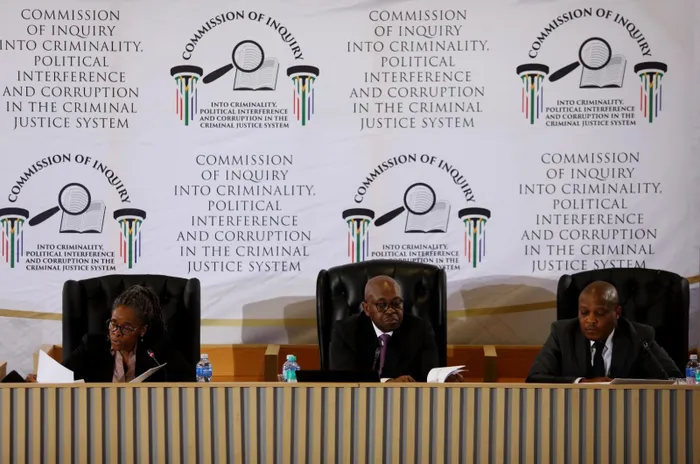South Africans' active role praised as Madlanga Commission probes police corruption

How South Africans Are Fighting Police Corruption Through the Madhlanga Commission
Image: Oupa Mokoena / Independent Newspapers
South Africans have been widely praised for their robust engagement with the ongoing Madlanga Commission investigating police corruption and political interference within law enforcement agencies.
Citizens have shared information, opinions, and support for the commission’s work on social media platforms, reflecting a growing commitment to transparency and democratic accountability.
Independent political analyst Joe Mhlanga commended South Africans for their vital role.
“We are observing significant numbers of South Africans participating in the Madlanga Commission, assisting the process by revealing information that may be useful to the commission.
“Social media has been instrumental in connecting the dots around incidents linked to police corruption and political interference within law enforcement agencies,” he said.
Mhlanga emphasised the importance of citizen involvement in shaping the narrative and safeguarding South Africa’s democratic institutions.
“This indicates that South Africans are now actively ensuring and shaping the narrative around law enforcement, but also safeguarding the democratic institutions of this country to ensure we function as a proper democratic government, not a criminal state led by criminals.
Mhlanga noted that each day of the commission has unveiled a deeper level of interference at senior levels.
“This Commission is revealing the rot. Witnesses or whistleblowers often bring concrete information that could help ensure arrests. However, this information, for some reason, gets delayed.
“Justice is deliberately stalled by those protecting their friends and interests against the South African government. We are hopeful the ongoing process will reveal much more, and South Africans must safeguard their democracy by ensuring those alleged to be part of this criminal syndicate are held accountable.”
The commission, which began hearings last week, has already heard testimony from key figures in the inquiry, Lieutenant General Nhlanhla Mkhwanazi and Police Commissioner-General Fannie Masemola.
Political analyst Professor Sipho Seepe stressed the commission’s critical role, particularly referencing July 6th, when Lieutenant General Mkhwanazi first publicly exposed police corruption.
“In his statement at the Commission, the general was consistent and clear, providing specific dates and examples. He presented credible evidence, though it is important to triangulate testimonies to discern the most likely truth. Different perspectives may emerge, but Mkhwanazi’s testimony is a credible starting point,” Seepe remarked.
He further explained the delicate balance the commission must strike.
“The commission's purpose is to uncover the truth and recommend corrective measures, but witnesses might hold back if there is fear of prosecution. Creating a safe environment for full disclosure is essential to address and prevent these societal problems truly.”
Seepe believes that although South Africans were concerned about the funds spent on commissions, he said the Madlanga Commission was necessary to unfold the truth.
thabo.makwakwa@inl.co.za
IOL Politics